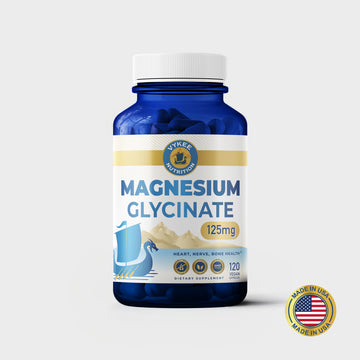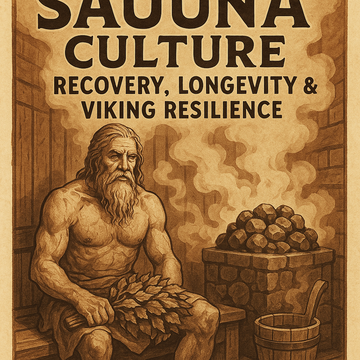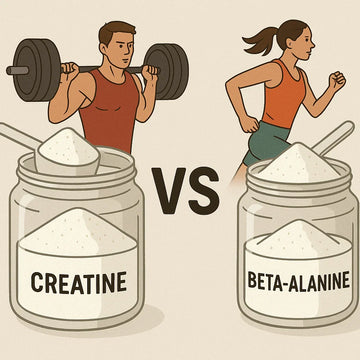What Is Nordic Sauna Culture?
For centuries, people in Finland and across Scandinavia have embraced the sauna as a ritual of purification, recovery, and social connection. Traditionally heated with wood-burning stoves, saunas expose the body to high heat (70–100 °C / 158–212 °F), followed by cooling in fresh air or icy water. This hot-cold cycle strengthens both body and mind — a practice deeply aligned with the Viking spirit of resilience.
Evidence-Backed Benefits
1) Cardiovascular Health
- Regular sauna use is linked to reduced risk of high blood pressure, heart disease, and stroke (PubMed).
- Heat exposure improves blood vessel flexibility and circulation.
2) Recovery & Performance
- Heat relaxes muscles, reduces soreness, and accelerates recovery after training.
- Improves joint mobility and reduces stiffness.
3) Stress Relief & Mental Balance
- Promotes relaxation by lowering cortisol levels and boosting endorphins (PubMed).
- Supports better sleep quality when used in the evening.
4) Longevity
- Finnish cohort studies link frequent sauna use (4–7 times per week) to longer life expectancy and lower risk of dementia (PubMed).
How to Practice Sauna Like a Viking
- Heat: 15–20 minutes in a hot sauna (70–90 °C).
- Cool: Step into cold air or plunge into icy water.
- Repeat: 2–3 rounds for maximum benefit.
- Hydrate: Drink water or electrolytes to replenish fluids.
Vykee’s Viking Take
The sauna is more than relaxation — it’s a ritual of strength and renewal. Just as Vikings endured extremes of cold and heat, the modern warrior can use sauna to recharge, protect the heart, and sharpen the mind. Pair your sauna practice with magnesium for muscle recovery and turmeric for inflammation support.
More Relevant Information
- Vykee Minerals collection
- Vykee Heart Health collection
- Anti-Inflammatory Supplements (Vykee blog)
- Vykee Blog Hub
FAQs
How often should I use a sauna?
2–4 times per week offers measurable cardiovascular and recovery benefits. Daily use is safe for most healthy adults.
Is sauna good for heart health?
Yes. Regular use is associated with reduced blood pressure, improved circulation, and lower risk of heart disease.
Can sauna improve mental health?
Yes. Heat exposure reduces stress hormones and increases endorphins, improving relaxation and mood.
Does sauna help with weight loss?
While it causes temporary water loss, its main benefits are improved cardiovascular health and metabolism support — not fat loss alone.
What should I avoid?
Avoid sauna if you are dehydrated, intoxicated, pregnant (unless cleared by a doctor), or have unstable heart conditions.
Conclusion
The Nordic sauna is a time-tested tool for recovery, heart health, stress relief, and longevity. By embracing this tradition, you step into the warrior’s path — building resilience through fire and ice.







